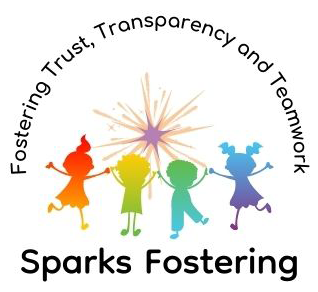foster carers with different Gender and Sexual Identities
As with the general population, children in care may express gender and sexual identity which doesn’t align with the male/female heterosexual identity of the majority of the population. People who identify as a minority group in terms of gender and sexual identity are often bullied, stigmatised and excluded from mainstream communities. This can lead to mental health problems such as depression. For children in care (who may be struggling with feeling of depression, trauma, and stigmatisation in relation to their care status and history of abuse), it is even more important that they are given appropriate support and care to help them to feel confident, have good self-esteem and to help them to thrive.
Sparks Fostering aims to support children with diverse identities by recruiting staff and foster carers who have diverse identities. If it isn’t possible to match children to foster carers with similar identities, the agency works alongside professional organisations who can offer appropriate advice and support to the child, the fostering families and to Sparks Fostering.







